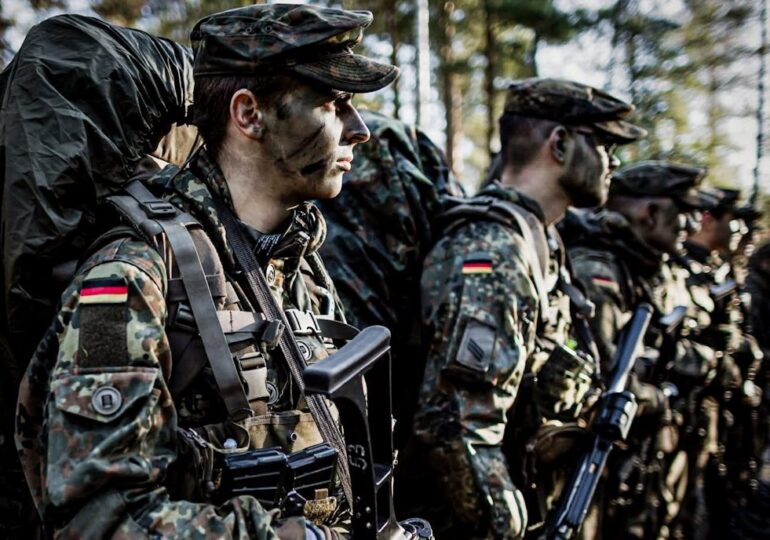Europe’s divided governments are ignoring the „level of violence in today’s world” and must step up their efforts to assert their combined strength as a coherent power, warns the French army’s chief of staff.
„A weakened Europe could wake up tomorrow as a hunted animal, after two centuries in which the West set the tone,” said General Thierry Burkhard in an unusually direct tone in an interview for Politico and the French newspaper Libération.
Burkhard warned that the fragmented countries of Europe will need to collaborate more closely to counter the "spheres of influence" built by China, Russia, and the USA.
"On one hand, European countries have never been so powerful. On the other hand, there is a form of denial by governments and populations in the face of the level of violence in today's world," he added.
The statements of the French general reflect an increasing number of warnings about Europe's weakness, the publication notes.
Former head of the European Central Bank, Mario Draghi, also emphasized last week that the EU must stop showing that it can exert global influence just like an economic force and consumer market. He insisted that the bloc received a "very brutal wake-up call" from Donald Trump, that it needs to think much more strategically about security and defense spending.
Italian Prime Minister Giorgia Meloni accused the European Union on Wednesday of slipping into irrelevance on the world stage. "We must be willing to pay the price for our freedom and independence," she said.
Burkhard, who will leave his position at the end of the month to be replaced by Air Force General Fabien Mandon, has been leading the French army since 2021.
Under his leadership, the French armed forces have increased their presence on the eastern flank of Europe and have become more active in NATO, while also preparing for high-intensity warfare.
In recent months, the French general has also co-chaired the Willing Coalition, a group of countries working on security guarantees for Ukraine in the event of a ceasefire with Russia.
A threat greater than Russian tanks
Burkhard described a world defined by four political factors:
- the use of force to resolve conflicts;
- pressure from countries such as China, Russia, North Korea, and Iran to challenge the West;
- the power of informational warfare;
- the impact of climate change.
"More than Russian tanks, establishing an alternative de-Westernized order threatens Europeans. If Russia can break Europe without a military attack, that is the path it will choose," said France's top military officer.
"In the world of tomorrow, the strategic solidarity that unites European countries must be very, very strong. No country in Europe can be a major player on its own. It's not about building something against the United States or even against Russia, but rather about reaching the critical mass needed to have influence and avoid being picked off one by one," Burkhard added.
The challenge for Europeans has always been to speak with one voice, especially when it comes to defense policy. Spain's efforts to be exempted from NATO's new defense spending target of 5% of GDP, following Prime Minister Pedro Sánchez's comments that Russia does not pose an immediate threat to Spain, highlight how differently European nations perceive threats.
"The difficulty of European defense is to encompass the strategic interests of European countries as a whole. Estonians do not have the same strategic vision as the Portuguese; no one can deny that. A middle ground must be found," said Burkhard.
Europe, between "chosen" wars and "imposed" wars
The high-intensity conflict in Ukraine triggers a profound rethink of how Western armed forces operate, says Burkhard.
"We have moved from chosen wars - in Iraq, Afghanistan, or Mali - to imposed wars," said the French general.
In what he calls "chosen wars," political and military leaders retain control over the amount of ammunition fired, the time troops remain, and the number of personnel deployed.
Imposed wars are existential conflicts without such options. "If Ukrainians do not fight 100% (against Russia), they will disappear. That's what imposed wars mean," he added.
To cope with the new realities, Western armed forces must diversify their arsenals. "The question 'what kills what and at what cost' is central. If we only develop high-tech weapons that kill but are actually very, very expensive, we probably won't succeed," Burkhard said, adding that armed forces also need cheap wear-and-tear weapons.
The French general rejects the idea that French armed forces could only last a few days in a high-intensity conflict because ammunition stocks are too low. France will not fight alone against Russia, but alongside NATO allies, he emphasized.
"Our ammunition stocks are not as large as they should be because we have focused more on chosen wars," Burkhard added. "Does this mean that the French armed forces are not able to engage in operations? No. They can do that tonight if necessary."
T.D.

